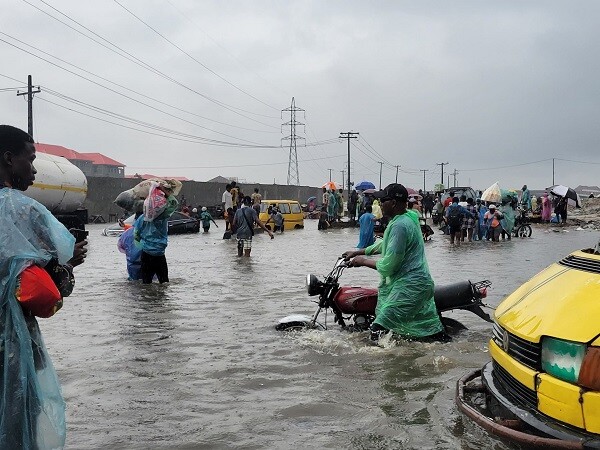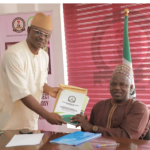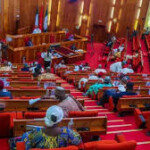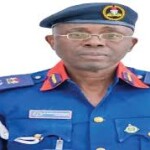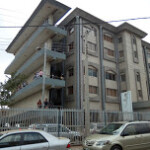Amidst flooding emergencies, Lagos disability community suffers information drought that weakens their resilience
By Elijah Olusegun
Samson Adebowale at Iba, Ojo LGA, and Bidemi at Ikotun, Alimosho LGA, live some 40 minutes’ ride away from each other. Apart from their disabilities, something else connects them: the flood-vulnerability of their areas.
Adebowale spent months floating in his relatives’ houses every year rains pounded the Iba area of Lagos, and the resulting deluge baptized his neighbourhood.
He saw it coming in the 2022 incident. What didn’t register was the vehemence of the patters and the speed of the gully-washers swelling into floods between August and October that year. According to the National Emergency Management Agency’s data, about 100 people in the area took the hit. And the disaster displaced 14. There is no disaggregated data of the displaced to confirm the percentage with disabilities that made it to safety.
In the teeth of a disaster, the Iba cobbler needed no explicit sign language to know it was time for him and his father to flee. Not to the Igando camp or any of the secondary school facilities LASEMA so designated.
“Anytime the flood came, we stayed with our neighbours or our family members,” he told ER. The squatting lasted one or two months every year.
His counterpart Bidemi at Ikotun has no relatives in Lagos. She found herself alone at the mercy of the element when the flood came last year. The ground floor of her house had been immersed almost up to the bed level. She couldn’t see it. It happened during the day in 2022. The commotion had alerted her, and she got a co-tenant to guide her up the first floor where her landlord sheltered them. The quiet that prevailed throughout the building in the last incident didn’t occur to her that others had fled. It was the coolness that gripped her when, from her bed, she stepped knee-deep into the floodwater that jolted her. She then groped her way out to the street begging for help before a shop owner took her in.
Her case presented a peculiarity. Adeyanju Elisha, a deaf journalist, observed the difference in his interactions with members of disability clusters who fell victim to flooding in Lagos. The deaf, he believes, can wade out of the water; the likes of Bidemi get trapped.
“I called my NAB state leader for help, and he asked me to call 111 or something,” Bidemi told ER in January. Meanwhile, a relief and resettlement camp the Lagos State Emergency Management Agency (LASEMA) designated for the internally displaced lies some 15 minutes’ ride at Igando.
Neither Adebowale nor Bidemi knew there was a relief the state provided then. The ignorance still persists, and will jeopardize many more in similar conditions.
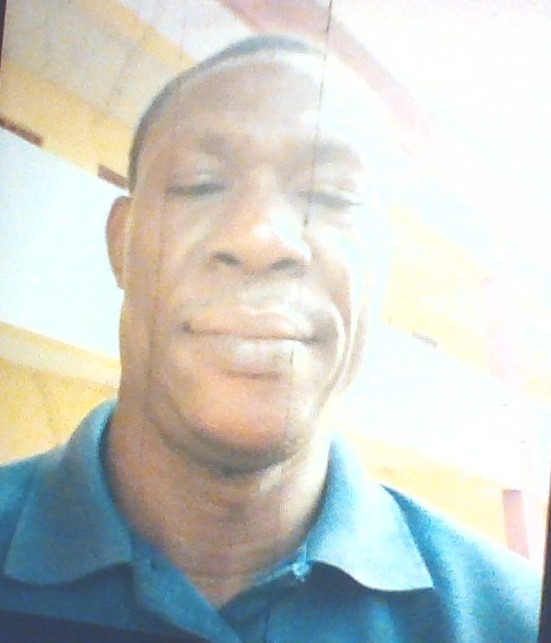
In Ifako Ijaiye, their fellow PWDs alongside thousands of others with no disabilities saw worse things same year. The flooding displaced thousands of people affected in that axis.
Iba and Ifako-Ijaiye don’t rank among areas the Lagos flood map identifies as high-risk. But Ifako-Ijaye, at the highest point of 76 meters above the sea level, and 3 metres below it, had 6,500 and 1,986, the highest number of persons respectively affected and displaced in Lagos that year. The figure surpassed even the Lagos Island’s. LASEMA’s Flood Vulnerability Assessment says the area lies 25 metres below the sea level, the lowest point in Lagos. Unfortunately, the nearest relief camp in Ifako-Ijaiye is a community stadium, and some other secondary schools. The other standard camp sits miles away at Agbowa, in Epe.
Persons with limited mobility, including wheelchair users and those with visual impairments, caught in disasters have to survive first, and access the camp later.
But no emergency responders came to rescue Bidemi and Adebowale in 2022—or at any other time—to the camp. “The emergency number my leader gave me was not available,” she said. And neither she nor her cluster leader knew of any relief camp. In all the months they shacked up with relatives, Adebowale and Elisha, too, said they never learnt of such shelter.
Lagos JONAPWD chairman Lukman Salami is aware of these designated facilities. “Truth be told, I have never picked interest in visiting them to verify their accessibility levels,” he told ER, stating his reason.
LASEMA disagreed with the PWDs when ER sought clarification. “I am sure that is not true,” an official contact person said in a Whatsapp message. “We have documentation how we have been assisting disabled and elderly people in our society.”
There are no fewer than eight camps across the 20 LGAs and 96 vulnerable points in Lagos. Only two of the camps—at Igando and Agbowa—have some standard of structural accessibilities. Others, mostly secondary schools, are not purpose-fit: just some makeshift arrangements to mitigate disaster impacts.
At the core of the disagreement between the Lagos disability community and LASEMA is the pull and push of expectation and responsibility. The friction, no doubt, is costing the state’s disability community.
The Lagos State Special People Law 2012 (Section 25) and the Discrimination Act already define the responsibility: LASEMA give PWDs preferential attention during emergencies. Similar provisions abound in the African Protocol on the Rights of PWDs, the UN Convention on the Rights of PWDs, and even the disability component of the Paris Agreement on Climate.
There is no way to confirm in the documentation LASEMA claims—that it actually minded this provision in its response to PWDs in past emergencies.
Salami doubted it, anyway, especially those other relief camps operations. “Ordinarily, the facilities we use on the daily basis, how inclusive or accessible are they? Your guess is as good as mine,” the JONAPWD chairman said. “Now talk of those reserved for emergency situations.”
It was his guess.
The LASEMA official confirmed to ER the Igando and Agbowa camps are of international standards, ‘manned by the International Organisation for Migration (IOM)’, and furnished with accessibility features.
When ER visited the Igando camp, its chief security officer noted the facility can shelter 600 displaced persons. Blocks of flats dot the premises, about the size of a standard football pitch. Their pavements, ramps and rails at the entrances, and other structure appeared in good condition. “That is how you have them all over: from the entrances to the bathrooms, kitchens, and even the clinic,” the CSO said.
Salami, still, wouldn’t dismiss his guess. The way Nigeria approaches disability inclusion reinforces his position.
All these counterpoints between LASEMA and the disability community indicate a lack of synergy. And the agency’s official ER spoke with made a point of it. “The disability agency need to approach us to fine tune our collaboration with them,” he said.
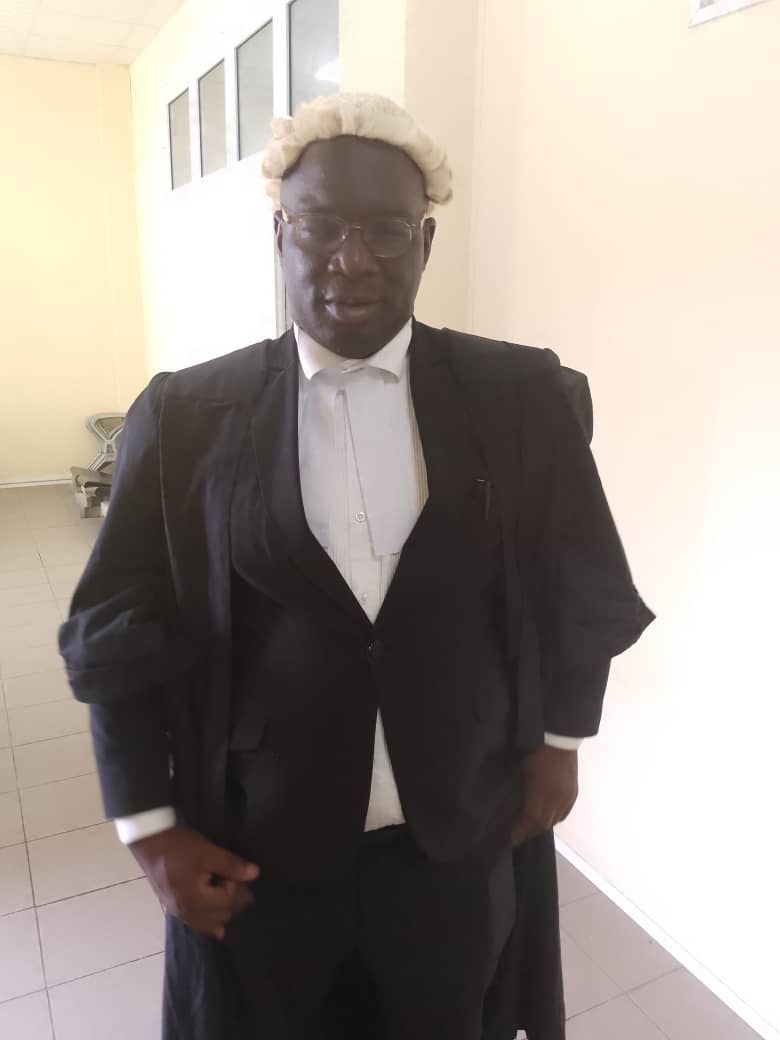
By implication, the Lagos State Office for Disability Affairs (LASODA) has yet to mainstream disability to that extent. (The office didn’t respond to a request for comments.)It’s no surprise then that other organisations of persons with disabilities (OPDs) remain outside of the emergency preparedness loop.
“Personally, I’m not aware of any programme LASEMA or the safety agency has organized to enlighten, empower, on create awareness on flood emergency response,” Salami said.
This information blackout has implications for PWDs during disasters.
Adebowale, for instance, spent between one and two months sponging on those he squatted with. His livelihood, shoe leatherwork, and independence usually came to a halt in those months, annually.
Bidemi became more vulnerable after her landlord that used to shelter them upstairs died. No neighbor is willing to take her in during flooding now. The shop owner that accepted her last year had to stow in after everyone had closed.
“She gave me a potty, if I had to ease myself, and locked me up inside till the following day,” she said. “I was afraid of the shop being robbed, and the robbers finding me inside.”
The impact is even less on deaf persons. “The physically challenged, the blind, and others may not be able to do much,” Elisha said. Apart from losing their property, victims with disabilities find themselves in a trauma, he added. “Some may feel depressed.”
Those victims ER interviewed had no idea of relief camps or some emergency numbers to call during the flooding emergencies they experienced; their only means of resilience was squatting with relatives and neighbours. Others had to move house, though mostly to places they considered safer within their already vulnerable areas. Adebowale said he left Iba for another which LASEMA has equally tagged high-risk. Deferring the evil day seemed a good strategy for him and others.
But the urgency the disability laws expect LASEMA and others to bring to their responses to PWDs in distress is clear enough. A lack of awareness shouldn’t become licence for impunity or half measures. That has turned out the reality now. LASEMA and the disability community can’t help trading blames.
The longer this continues, the easier it becomes for authorities to settle into treating disability laws and policies with levity.

